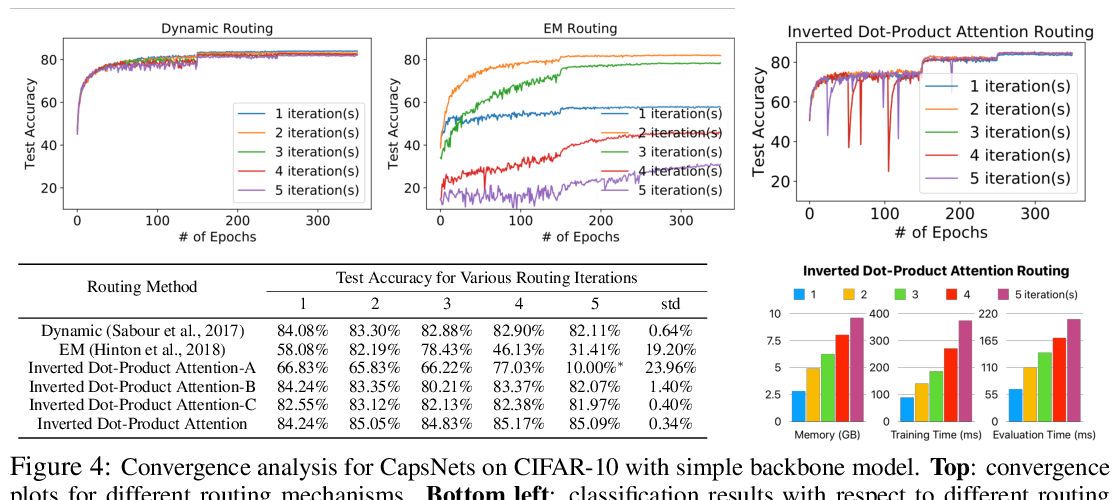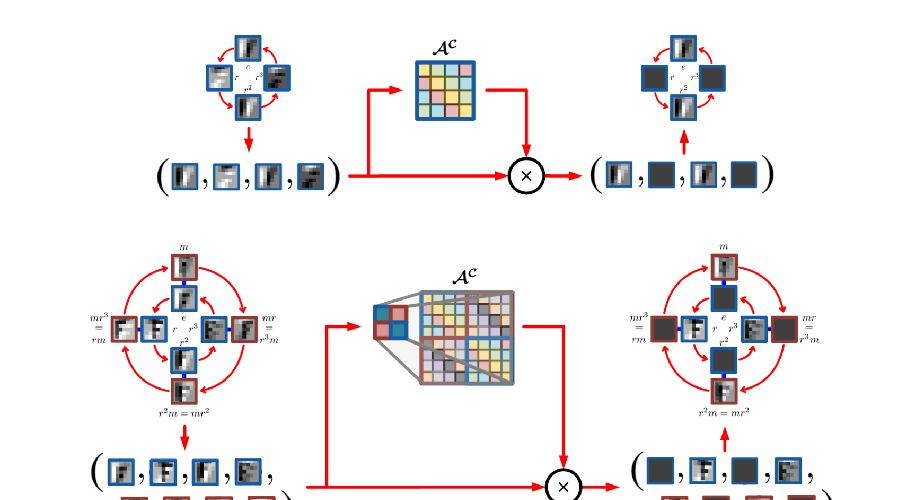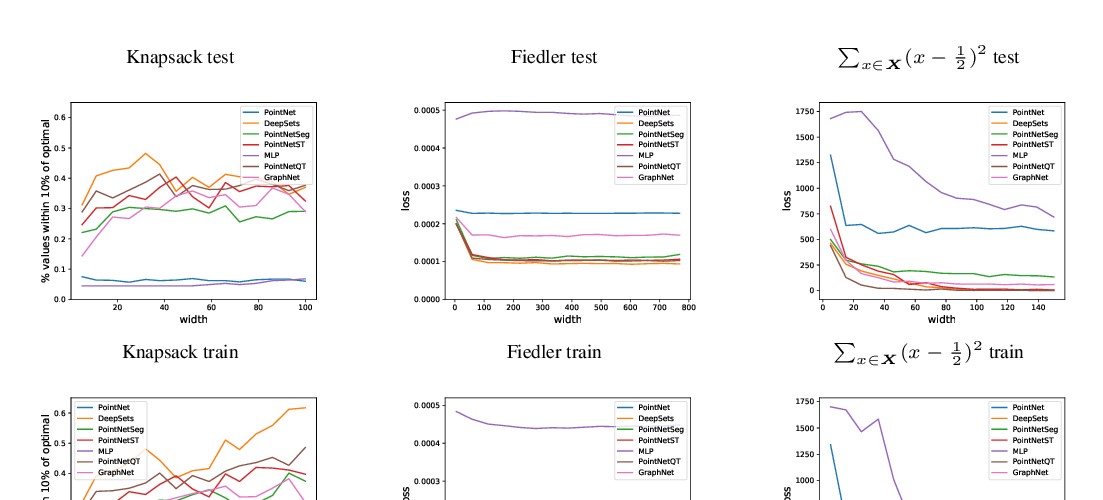Abstract:
Capsule networks are constrained by the parameter-expensive nature of their layers, and the general lack of provable equivariance guarantees. We present a variation of capsule networks that aims to remedy this. We identify that learning all pair-wise part-whole relationships between capsules of successive layers is inefficient. Further, we also realise that the choice of prediction networks and the routing mechanism are both key to equivariance. Based on these, we propose an alternative framework for capsule networks that learns to projectively encode the manifold of pose-variations, termed the space-of-variation (SOV), for every capsule-type of each layer. This is done using a trainable, equivariant function defined over a grid of group-transformations. Thus, the prediction-phase of routing involves projection into the SOV of a deeper capsule using the corresponding function. As a specific instantiation of this idea, and also in order to reap the benefits of increased parameter-sharing, we use type-homogeneous group-equivariant convolutions of shallower capsules in this phase. We also introduce an equivariant routing mechanism based on degree-centrality. We show that this particular instance of our general model is equivariant, and hence preserves the compositional representation of an input under transformations. We conduct several experiments on standard object-classification datasets that showcase the increased transformation-robustness, as well as general performance, of our model to several capsule baselines.


